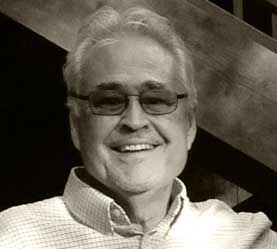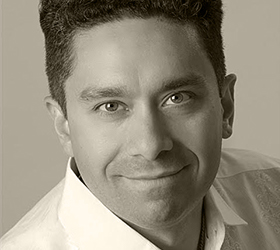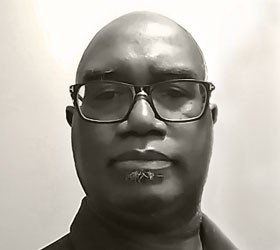Innovative Addiction Treatment Methods with Real-World Application
Reach your professional goals with a program that is tailored to fit your unique needs. Whether you seek training for an entry-level position in the field or are looking to advance in your current position, Cal State East Bay's Addiction Studies Certificate Program has an option for you. You’ll enjoy learning the latest and most innovative addiction treatment methods from seasoned instructors, many of whom run their own private practices or recovery centers.
Approved by Board of Registered Nursing (BRN) for BRN credit, (BRN provider #10351), Board of Behavioral Sciences (BBS) credit, and CCAPP credit
Most course instruction is delivered online, making the program an easy fit for working adults
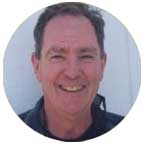
My experience was awesome. I had some really great teachers who really helped me through the process and made the journey very enjoyable, as well as informative. I would highly recommend this program.
Be an Agent of Change

A career where you can help people and make a real difference.
Looking for a career that allows you to help people and make a positive difference daily? As a professional substance abuse and behavioral disorder counselor, you’ll be able to lend your expertise in a variety of fields, including outpatient mental health and substance abuse centers, correctional facilities, nursing and residential care facilities, individual and family services, and local government agencies.
Occupational Trends
In 2024, the median annual wage for Substance Abuse and Behavioral Disorder Counselors was $59,190 nationally, with the highest 10 percent earning more than $98,210.
—U.S. Bureau of Labor Statistics
Employment of Substance Abuse and Behavioral Disorder Counselors is projected to grow 18 percent from 2025 to 2035, much faster than the average for all occupations.
—Labor Market Analytics – Lightcast
Outpatient care centers, individual and family services, and offices of other health practitioners were the top industries for Substance Abuse and Behavioral Disorder Counselors in 2024.
—Labor Market Analytics – Lightcast
A Vibrant Community for Good
Join the list of accomplished Cal State East Bay graduates who are actively working with drug and alcohol abusers as counselors, therapists, nurses, and probations and corrections officers. Some graduates have even successfully developed their own recovery centers after completing the program.
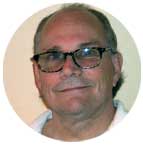
I've been hired by and working with one of the professors for over five years. The certification is highly regarded in the field and I believe that it has opened many doors for me.

The instructors are great and very informative. It gave me a sense of assurance when I heard the instructors were working in the field. Hearing their stories on their own recovery process and programs that they have put together was great.
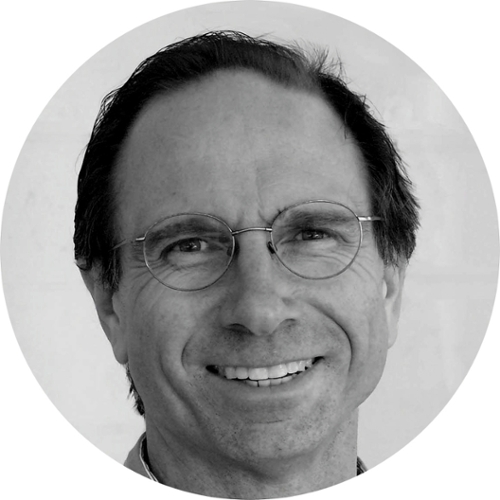
I've started and/or run five drug treatment programs, including a program at San Quentin State Prison. The field had evolved since I began working in it. I'm very glad to be picking up on the newest technologies.
Program Objectives
Graduate with the expertise you need to succeed in your chosen career path, including:
The knowledge and expertise necessary to meet the minimum state requirements for addiction counseling.
Cutting-edge techniques for working with your clients and the foundation necessary to advance in the field.
The most advanced and comprehensive training and professional development, making you an ideal candidate for higher-level counseling positions.
With Flexibility and Convenience, Life Goes On . . .
Most course instruction is delivered via an online approach. Additionally, you will take two skills-based counseling classes in person at the Hayward Hills Campus. Choose between two tracks designed to meet your goals, or take any courses individually to fulfill professional development and continuing education requirements. Depending on your background and career goals, the program offers distinct options to fit your unique needs:
If you want to take advantage of the most comprehensive and respected training program available, you should pursue the prestigious CCAPP/AOD Counselor Track.
If you are a licensed therapist, nurse, social worker, or probation or correctional professional with a practice or caseload of clients who have co-existing alcohol and/or drug problems, you should pursue the CSUEB Certificate Track.
CCAPP/AOD Counselor Track Curriculum
Recommended if you seek to enter the substance abuse counseling field and want the most comprehensive and rigorous training available.
Certificate Requirements
To earn your certificate in Addiction Studies, CCAPP/AOD Counselor Track, you must complete the required courses listed, including a 255-hour practicum. You must receive a "C" grade or above for a class to apply the course towards the certificate. This program can be completed in 18-24 months.
For complete information on the CCAPP certification process or to order a CCAPP handbook, call (916) 368-9412 or write CCAPP, 3400 Bradshaw Road, Suite A5, Sacramento, CA 95827.
Required Courses
| Course | Units | Fall | Spring | Summer |
|---|---|---|---|---|
| EPSY 805: Theories of Addiction | 2 | X | ||
| EPSY 807: Law & Ethics in Addiction Counseling | 1 | X | ||
| EPSY 810: Behavioral Pharmacology | 2 | X | ||
| EPSY 806: Basic Counseling Skills (in person, on campus class) | 3 | X | ||
| EPSY 821: Co-Occurring Disorders | 1 | X | ||
| EPSY 822: Treatment Planning and Documentation in Addiction Treatmen | 1 | X | ||
| EPSY 813: Treatment and Recovery Issues | 3 | X | ||
| EPSY 814: Substance Abuse and Gender Culture, Lifestyle and Lifespan Issues | 3 | X | ||
| EPSY 811: Addiction and the Family | 1 | X | ||
| EPSY 816: Counselor Burnout | 1 | X | ||
| EPSY 823: Group Dynamics for Addiction Counseling (in person, on campus class) | 2 | X | ||
| EPSY 808: Relapse Prevention | 1 | X | ||
| EPSY 815: Case Management | 1 | X | ||
| EPSY 817: Certification Seminar in Addiction Studies | 1 | X | X | X |
| EPSY 818.1: Supervised Field Practicum* | 1 | X | X | |
| EPSY 818.2: Supervised Field Practicum* | 2 | X | X |
*You will enroll in EPSY 818 twice. First, you will enroll in the 1-unit course prior to beginning the practicum, and then you will enroll in a 2-unit course while you are in the process of completing the 255-hour practicum. Please note, EPSY 817 and EPSY 818 should be taken after all other required courses are completed.
Course schedules, including the term courses are offered in, are subject to change. For the most up-to-date information on courses currently being offered, visit the course details page.
CSUEB Certificate Track Curriculum
Recommended if you are a licensed therapist, nurse, social worker, or probation or correctional professional with a practice or caseload of clients who have co-existing alcohol and/or drug problems. This track is also recommended for any student who may be interested in the addiction counseling/treatment subject matter who is not seeking any state certification.
Certificate Requirements
To earn your certificate in Addiction Studies, CSUEB Certificate Track, you must complete all required courses listed below (CSUEB Certificate Track students are not required to complete the EPSY 818.1 or 818.2 courses). Students must receive a "C" grade or above for a class to apply the course towards the certificate. You can complete this program in 12 months.
Required Courses
| Course | Units | Fall | Spring | Summer |
|---|---|---|---|---|
| EPSY 805: Theories of Addiction | 2 | X | ||
| EPSY 807: Law & Ethics in Addiction Counseling | 1 | X | ||
| EPSY 810: Behavioral Pharmacology | 2 | X | ||
| EPSY 806: Basic Counseling Skills (in person, on campus class) | 3 | X | ||
| EPSY 821: Co-Occurring Disorders | 1 | X | ||
| EPSY 822: Treatment Planning and Documentation in Addiction Treatmen | 1 | X | ||
| EPSY 813: Treatment and Recovery Issues | 3 | X | ||
| EPSY 814: Substance Abuse and Gender, Culture, Lifestyle, LIfespan Issues | 3 | X | ||
| EPSY 811: Addiction and the Family | 1 | X | ||
| EPSY 816: Counselor Burnout | 1 | X | ||
| EPSY 823: Group Dynamics for Addiction Counseling (in person, on campus class) | 2 | X | ||
| EPSY 808: Relapse Prevention | 1 | X | ||
| EPSY 815: Case Management | 1 | X | ||
| EPSY 817: Certification Seminar in Addiction Studies* | 1 | X | X | X |
*EPSY 817 should be taken after all required and elective courses have been completed.
All courses listed are approved for the National Association for Alcoholism and Drug Abuse Counselors (NAADAC), Board of Registered Nursing (BRN) Credit (BRN provider #10351), Board of Behavioral Sciences (BBS) Credit, and CCAPP Credit and can be taken individually without enrollment in a certificate track.
Course schedules, including the term courses are offered in, are subject to change. For the most up-to-date information on courses currently being offered, visit the course details page.
For a complete list of courses, including all course descriptions, click here.
You're Invited to Enroll
Admission to the Addiction Studies Certificate Program is open to all interested students who have received a high school diploma or GED equivalent and who have one year sobriety leading up to the start date of the Cal State East Bay Addiction Studies coursework.
*Cal State East Bay alumni: The Forever Pioneer Discount is available for this program. Registration must be processed via this Forever Pioneer form in order to qualify for the discount.
Please note: Students seeking certification from the state or other regulatory organization after completion of Cal State East Bay’s Addiction Studies Certificate Program may need to be able to show completion of specific college/university coursework. Students are encouraged to review state/organization certification requirements to determine the specific academic/course requirements needed.
At Cal State East Bay, we pride ourselves on putting students first, from the moment you inquire until you graduate. We hope you've found answers to your questions in this support center, but if not, please get in touch.
